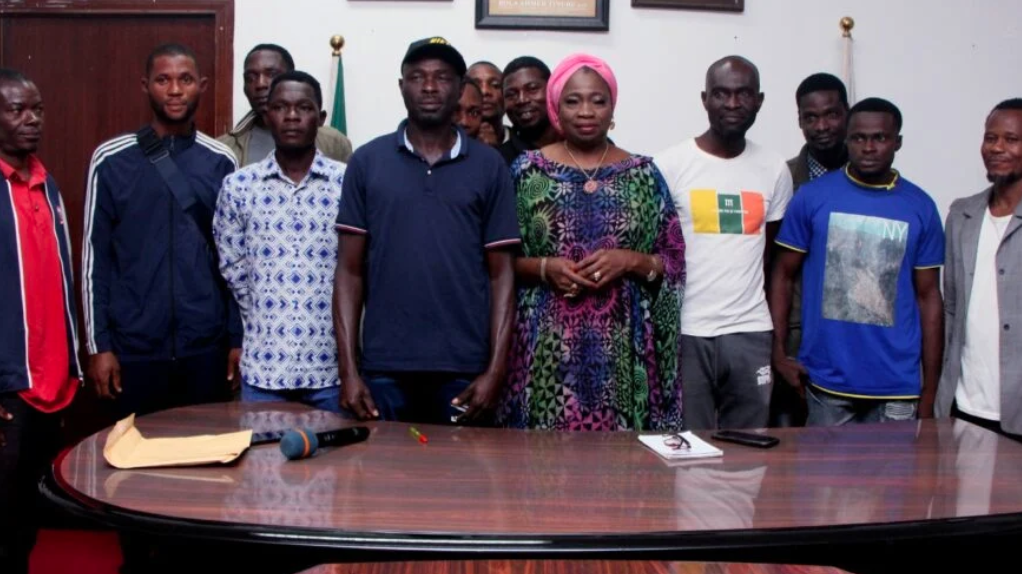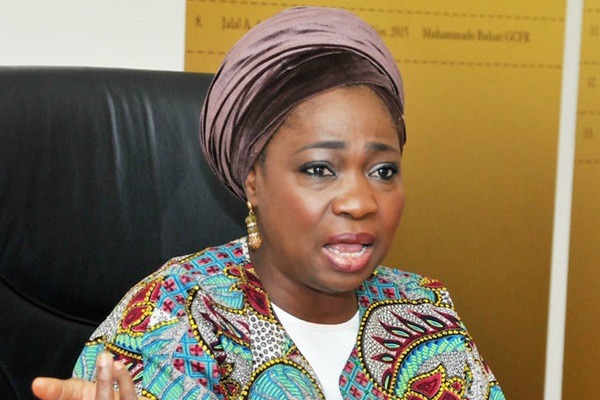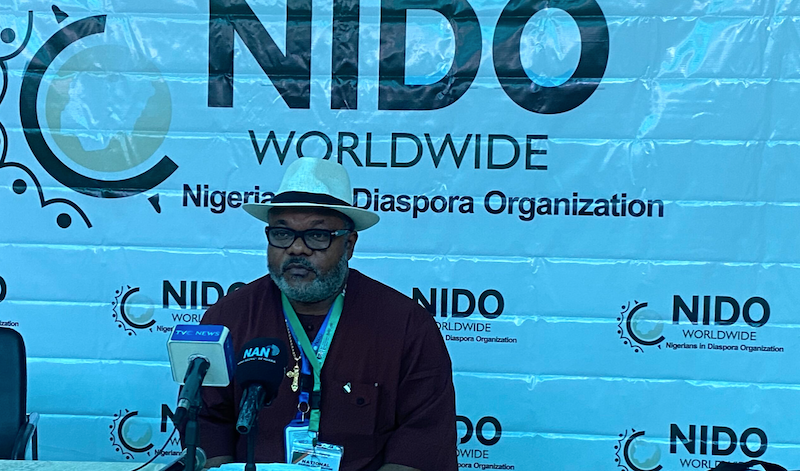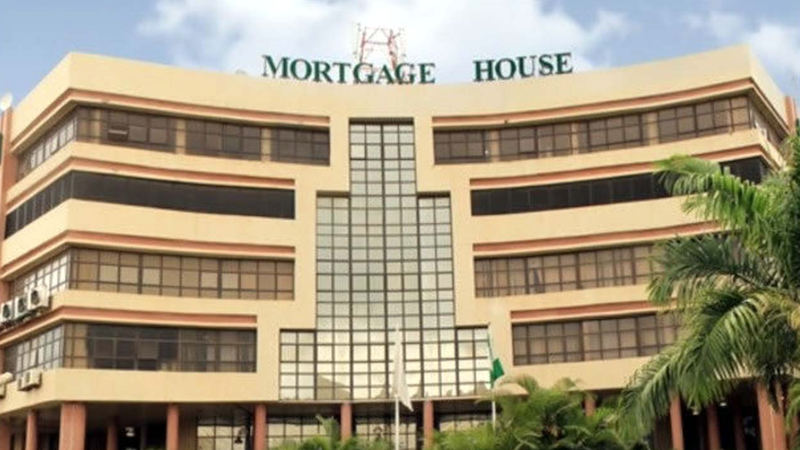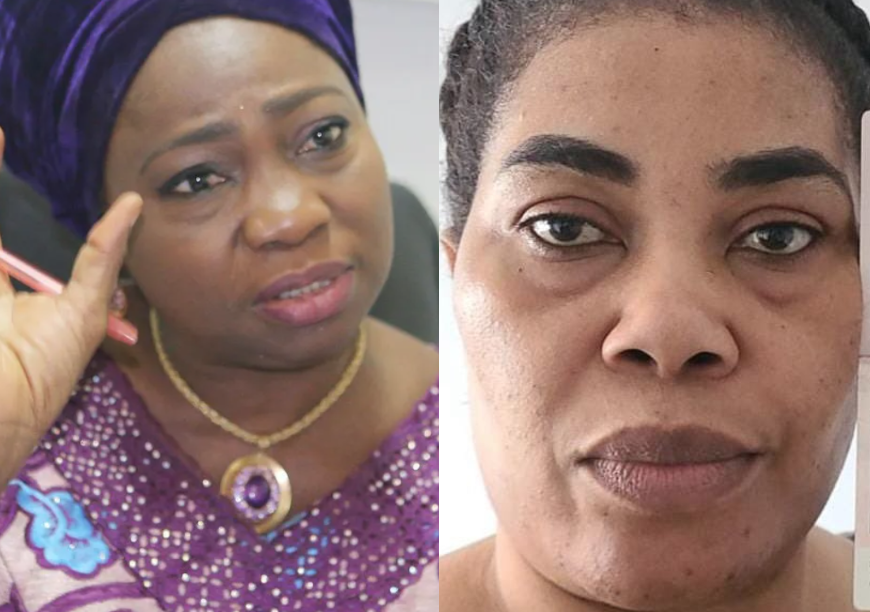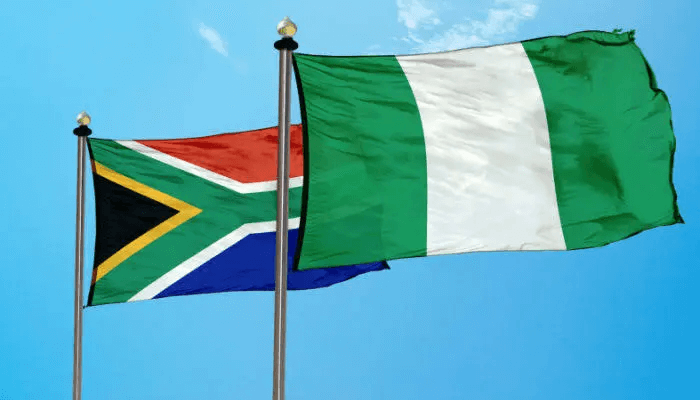The recent revelation by Hon. Abike Dabiri-Erewa, Chairperson of the Nigerians in Diaspora Commission (NiDCOM), that more than 7,000 Nigerians are currently stranded in Libya, inspired this intervention. Her statement revived painful memories that moved me, eight years ago in March 2017, to publish an article lamenting the surge of illegal migration by our young men and women in search of greener pastures abroad.
That desperate pursuit often ended tragically, as countless Nigerians lost their lives attempting to cross the Sahara Desert on foot via Libya into Europe or navigating the Mediterranean Sea in rickety wooden boats into the Lampedusa islands, Italy.
These harrowing journeys evoke chilling reminders of how our forefathers were once shipped across oceans in tightly packed vessels during the Transatlantic slave trade, or dragged in chains across deserts in the Trans-Saharan trade. Sadly, despite the solutions I proposed in that earlier piece, nothing has changed. Eight years later, the Sahara and the Mediterranean remain vast graveyards for our youth, their lives wasted in pursuit of uncertain dreams.
It is important at this point to admit that the long title of this essay is deliberate. It underscores the central point—that the sheer scale at which Nigerian lives are squandered through illegal migration, where our youth lose not only their identities as undocumented migrants but also fall prey to human traffickers, must be brought to the fore. Some of these traffickers even go as far as harvesting organs from their victims. These stark realities need to be highlighted to guide our youth away from such dangerous paths.
The purpose of this essay, therefore is to paint a complete picture of the consequences of being undocumented—whether stranded in foreign lands or en route to them—so our young people can draw the right lessons. Before revisiting a significant portion of my 2017 article titled “Human Trafficking: How Nollywood, Traditional Rulers, and Businesses Can Come to the Rescue,” it is important to provide an update on global efforts to curb undocumented migration.
One striking example is the plan once championed by former UK Prime Minister Rishi Sunak, who sought an agreement with Rwanda to “offload” undocumented migrants from Britain. The irony is glaring: a country that centuries ago forcefully uprooted Africans from their homelands and shipped them across the globe under imperial rule, now seeks to expel their descendants, preventing them from setting foot in the UK and even attempting to deport them to another African country.
Of course, every nation reserves the sovereign right to decide who it admits or rejects. What raises deep moral concerns is the inhumane manner in which such policies are sometimes pursued. The UK’s failed attempt to deport migrants to Rwanda echoes history—specifically the relocation of freed slaves from Britain to Sierra Leone in 1787, under the initiative of abolitionist Granville Sharp. Sierra Leone eventually became a British Crown Colony in 1808 and gained independence in 1961.
Similarly, the United States once adopted a comparable policy. In 1822, freed Black slaves were sent to Liberia, which declared independence in 1847. Like Sierra Leone, it symbolized both liberation and exile—a reminder that even efforts framed as humanitarian often carried undertones of rejection.
Now, although the new UK Prime Minister, Keir Starmer, has scrapped the Rwanda plan, the parallels remain. The historical echoes—from Sierra Leone to Liberia—show how the legacies of forced displacement continue to shape the fate of Africans and their descendants today.
It is also interesting and abhorrent how Americans with Nigerian heritage are celebrated when they accomplish feats in sports, academia, entrepreneurship, and even in politics. But if they are involved in crime they are disowned by being described as Nigerian immigrants.
It conforms with the popular notion- success has many fathers but failure is an orphan. It must be stated that, such an attitude is unfair because it is morally wrong to selectively claim Americans of Nigerian origin only when it is convenient and serves their best interest and tag them with a Nigerian identity when they commit an offense against the US.
To be clear, the situation of tarnishing the image of Nigerians abroad in the US applies in all the other climes where Nigerians are in the diaspora. That needs to change. The concept of citizen diplomacy is the solution that Nigerians in the diaspora must adopt to separate the bad eggs from the good ones.
Trump’s Deportation Strategy, Global Parallels, and Lessons for Nigeria.
Just as the United Kingdom once attempted to deport undocumented migrants to Rwanda, the Trump administration in the United States has been pursuing similar agreements with multiple countries in South America and Africa. A striking example is the case of Aggrego Garcia, an undocumented immigrant who, after being deported to El Salvador and returning, was given through the courts the unusual choice of being deported either to nearby Costa Rica or as far away as Uganda in Africa.
This approach mirrors the UK’s deal with Rwanda and recalls the historical precedents of Sierra Leone and Liberia—nations founded centuries ago when freed slaves were deported from Britain and the United States respectively.
As a public policy analyst—not an activist—I find it necessary to draw attention to the ideas I presented eight years ago in my earlier referenced publication. These recommendations, if adapted, could guide Nigerian and African policymakers today, especially as the US has adopted strategies that aim to deglamorize illegal migration. One example is the Florida-based “Alligator Alcatraz” detention center, a facility for undocumented immigrants awaiting deportation. Known for its harsh conditions and surrounded by dangerous reptiles like alligators and snakes, the center’s very reputation is meant to serve as a deterrent to those considering illegal entry.
The logic is clear: by showcasing the grim realities that await undocumented migrants, authorities hope to discourage would-be migrants before they embark on the journey. And, according to reports, the strategy appears to be working.
Recent studies, including one by Pew Research, indicate that illegal immigration to the US has dropped sharply. In the first half of 2025 alone, the foreign-born population declined by 1.4 million—the first such fall in fifty years. This drop is attributed to stricter border controls, mass deportations, and voluntary returns. Key figures highlight the scale: the foreign-born population shrank from 53.3 million to 51.9 million, with the unauthorized immigrant population falling by about 1 million.
On the surface, this decline may seem like a policy success. But it carries risks. The immigrant share of the US labor force has dropped from 20% to 19%, translating to over 750,000 fewer workers, many of whom traditionally filled roles in farming and artisan labor. Economists warn that labor shortages could weaken industries heavily dependent on immigrant workers. History itself reinforces this point: America’s economic rise was built in no small part on immigrant labor, going back to the forced labor of African slaves brought through the transatlantic slave trade to work in wheat farms, etc.
Thus, while the Trump administration hails these policies as achievements—boasting of reduced illegal crossings, safer streets, and more jobs for Americans—many experts caution that the economic consequences could be severe, affecting both immigrants and US citizens alike.
Fingers are crossed on whether President Trump’s sweeping anti-illegal immigrants approach serves the US economy better or otherwise. But generally, sweeping actions against illegal immigrants are part of Trump’s campaign promises most of which he has been fulfilling.
For Nigeria, there are lessons. The US has implemented one of the very ideas I suggested years ago: deglamorizing migration by exposing its harsh realities that the streets of Europe or the US are not paved with gold as depicted in Western movies. But our leaders have yet to take seriously other recommendations, such as leveraging Nollywood to depict the dangers of illegal migration, or mobilizing traditional rulers- who are closest to the grassroots- to enlighten rural communities.
Thankfully, the ongoing review of the 1999 constitution of Nigeria promises to assign our traditional rulers a more critical role in the governance of our country. Persuading our youth not to flee to a foreign land because of the grave danger they may face is a job well cut out for our traditional rulers in their impending new role.
The Oba of Benin, for example, once led an effective campaign against human trafficking at the height of the crisis about a decade ago in his kingdom, which had become an epicenter of sex trafficking trade.
As a prelude to my conclusion, I urge readers to revisit my March 2017 essay to see that the tragedy of human trafficking in Africa is not insurmountable. With innovative leadership and targeted collaboration between African governments and destination countries, this scourge can be tackled.
Human Trafficking: How Nollywood, Traditional Rulers, and Businesses Can Help.
When Nigerians hear about youths stranded in Libya, many shake their heads in despair. Recently, NiDCOM revealed that over 7,000 Nigerians remain trapped there. This is not new. For years, desperate young men and women have risked their lives crossing the Sahara Desert and the Mediterranean Sea, turning both into mass graves. Despite repeated warnings, the tide of illegal migration shows little sign of abating.
The reasons are familiar—bad governance, poverty, conflict, and unemployment. But one driver receives less attention: the power of films. For decades, Hollywood has projected the West as a land where streets are paved with gold. These portrayals fuel unrealistic expectations among impressionable African youths, many of whom believe life abroad guarantees instant prosperity.
This is where Nollywood comes in. Our film industry may not yet rival Hollywood in scale, but it holds extraordinary influence over African audiences. If Nollywood tells more honest stories about life in Europe—portraying the struggles of unemployment in Italy or economic stagnation in Greece—it can counterbalance the fantasy of Europe as paradise.
Visionary filmmakers like Kunle Afolayan, Mo Abudu, Zeb Ejiro, and Jeta Amata can help shift mindsets, showing that opportunities at home, though imperfect, may be safer and more rewarding than chasing illusions abroad.
The strategy is not far-fetched. The UN once used cinema to promote birth control across Africa with measurable success. Television and film remain among the most powerful tools for shaping attitudes and behavior. Nollywood can be enlisted to dramatize the risks of trafficking, the heartbreak of families torn apart, and the grim realities migrants face in detention camps.
But cinema alone cannot win this battle. Another force sustaining trafficking is the cultural weight of juju oaths. As CNN’s Nima Elbagir documented, traffickers often force victims to swear rituals binding them to secrecy and compliance. Fear of these oaths has silenced many victims, especially in Edo and Delta States, the epicenters of trafficking.
Thankfully, the Oba of Benin, HRM Ewuare II, acted decisively. He summoned priests across his kingdom and ordered them to annul the potency of such oaths, declaring trafficking a taboo. This royal intervention has given victims courage to speak up, while emboldening communities to confront traffickers without fear of spiritual reprisal. It shows how traditional rulers can wield cultural authority to dismantle criminal enterprises.
Still, the deepest root of trafficking is economic desperation. Young people leave because they lack jobs. Here, the private sector must step up. History offers a striking example: decades ago, when large numbers of Chinese were migrating illegally to British-ruled Hong Kong, Mao Zedong encouraged Hong Kong entrepreneurs to build factories along China’s coastline. Those industries absorbed idle youth, curbing the incentive to migrate.
Africa needs a similar model. Our billionaires must invest in large-scale job creation, not just philanthropy. Aliko Dangote has done commendably through his industrial ventures, and the Tony Elumelu Foundation, TEF which is nurturing youth entrepreneurs across the continent-equiping them with skills and giving them seed money. But as Bill Gates rightly noted, Nigeria’s wealthy elite have not done nearly enough. Their combined influence could transform the lives of millions if channeled into sustainable enterprises.
The global billionaire class must also play its part. Titans like Jeff Bezos, Mark Zuckerberg, and Warren Buffett dominate markets in which trafficked victims are unwilling consumers. They, too, have a moral responsibility to invest in Africa’s growth. Building supply chains, factories, and tech hubs here would not only reduce the push factors of migration but also secure new markets for their businesses.
The lesson is simple: poverty breeds desperation, and desperation fuels trafficking. By creating jobs, businesses—local and global—can save lives while also protecting long-term stability. As Bob Geldof’s Band Aid anthem once put it during Africa’s famine: “There is a choice we’re making; we’re saving our own lives.” That truth still resonates.
Meanwhile, Nigeria’s institutions cannot afford to sit idly by. Despite NiDCOM’s creation, thousands of Nigerians remain trapped in Libya, Sudan, etc. The government must act with greater urgency—working through ministries of foreign affairs, interior, Culture, and Digital economy and information alongside NiDCOM—to implement strategies that reduce the allure of illegal migration. Nollywood must be mobilized to counter dangerous myths. Traditional rulers must continue confronting trafficking networks with their unique wisdom. And the business community must invest in job creation on a scale that matches the size of the challenge.
The Africa Continental Free Trade Area,(AFCFTA) uniting 54 nations into a single market and regulatory regime aimed at boosting trade on the continent makes investing in Africa easy, seamless, and a good business case as opposed to charity.
The incumbent administration is known for its agility and responsiveness. As such it is expected to rise to the occasion.
Human trafficking is one of the darkest stains on our time. Yet it is not beyond remedy. With a united approach—storytelling that reshapes perception, cultural leadership that breaks spiritual bondage, and economic investment that restores dignity—Nigeria and Africa can begin to turn the tide.
The tragedy of young lives wasted in deserts, seas, and detention centers must not continue. It is time to act, and to act decisively. On that note, apart from the executive branch, l urge the national assembly to rise to the occasion by passing legislation that will save our youth population from being wasted as the unfortunate and horrific incident of the slave-trade blighted our country and indeed the continent of Africa centuries ago by decimating our young and verile men/women population when they were forcefully removed from the continent to Europe and the Americas by transatlantic slave traders.
Magnus Onyibe, an entrepreneur, public policy analyst, author, democracy advocate, development strategist, and alumnus of the Fletcher School of Law and Diplomacy, Tufts University, Massachusetts, USA, is a Commonwealth Institute scholar and a former commissioner in the Delta State government. He sent this piece from Lagos.

